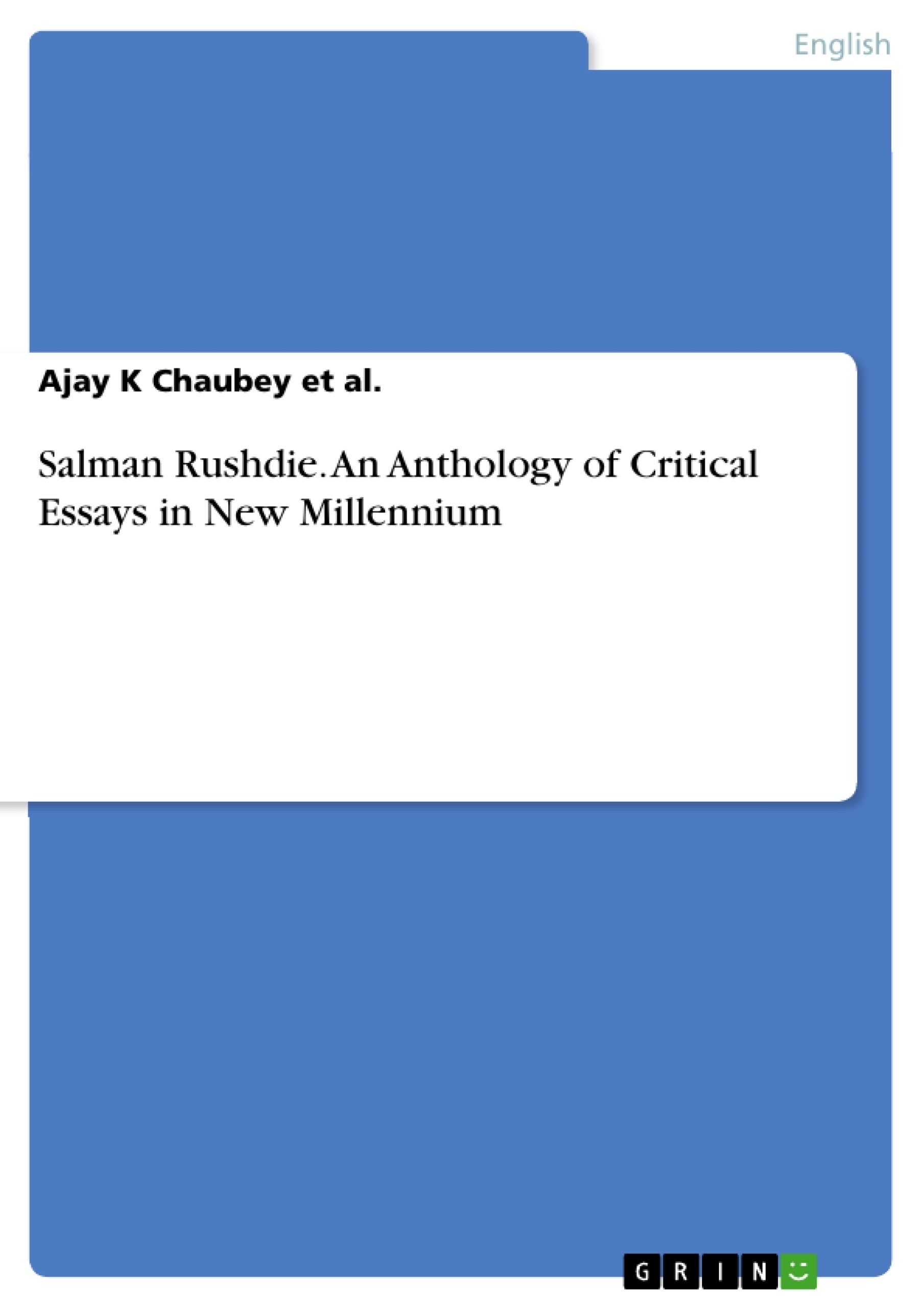Famous for multifarious writing, Salman Rushdie himself is a multifaceted personality, often emerges as an unpredictable figure with an unfathomable depth of creativity and criticism. Being an iconoclast, Rushdie never chooses the trodden road: he rather plunges headstrong into the unexplored territories of literature, not yet attempted.
The present volume strives to find how Rushdie is germane in the twenty first century politics of globalization, literary schema, and cosmopolitanism. The book has been divided into two broad heads—the first section intrinsically deals with the most popular book of Rushdie, Midnight’s Children while the second section contains Rushdie’s latter fictions which have been researched and presented in the light of intertextuality, hybridity, diaspora and, of late, autobiography.
The essays are written by Suhaina Bi, Sutanuka Ghosh Roy, Ram Bahawan Yadav, T. Sasikanth Reddy, Asis De, Vikrant Sehgal, Indah Lestari, Ajit Kumar, Hetal K. Kachhia, Hetal M. Doshi, Nesha Sabar/Pramod Kumar Das, Ramesh Tibile, Bini B. S., Manjeet Kumar Kashyap and Valiur Rahaman.
Table of Contents
- INTRODUCTION
- The Novels of Salman Rushdie: A Postcolonial Reading
- Section-A
- Midnight's Children: Fiction, History and the Nation
- Presentation of a Wounded Civilization: A Cosmopolitan Perspective of Midnight's Children
- The Dichotomous Nature of Decolonisation of India in Salman Rushdie's Midnight's Children
- Interfacing Myth vs. History: A Postcolonial Study of Salman Rushdie's Midnight's Children
- Salman Rushdie's Midnight's Children: A Kaleidoscopic View
- In Time of Narrating the Nation: Rushdie's Transcendence of National History in Midnight's Children
- Section-B
- Diasporic Identity, Intertextuality, Treatment of History and Autobiography
- Diasporic Identity in Salman Rushdie's Shalimar the Clown
- Indianness and Satire of History in Salman Rushdie's The Moor's Last Sigh
- Journey towards New World in the selected Novels of Salman Rushdie
- Globalization and Cosmopolitanism: Major Themes in the Works of Salman Rushdie
- Theological Aspects and Diasporic Sensibilities in Rushdie's Satanic Verses
- Salman Rushdie's Shame: A Study of Narrative Strategies
- Salman Rushdie: A Self-Proclaimed Controversialist
- Chutneys, Pickles, Palimpsests and Collages: Lived and Imagined Temporalities in the Works of Salman Rushdie
- Nation and Non-narration: Multiplicity, Hybridity and Heterogeneity in Salman Rushdie's The Moor's Last Sigh
- Metautobigraphicity: Some Observations on Salman Rushdie's Enchantress of Florence
Objectives and Key Themes
This anthology of critical essays aims to explore the works of Salman Rushdie, a prominent postcolonial author known for his multifaceted narratives. The essays delve into various aspects of Rushdie's writing, examining his critique of intellectual and political pluralism, his exploration of diasporic identity, and his innovative use of history, fiction, and magic realism.
- The complexities of postcolonial identity and the impact of globalization
- The role of history and myth in shaping national and personal narratives
- The intersection of literature, politics, and religion in Rushdie's works
- The evolution of Rushdie's writing style and his contributions to postmodern and diaspora literature
- The controversial reception of Rushdie's work and its implications for freedom of speech and expression
Chapter Summaries
The essays in Section A examine Rushdie's acclaimed novel Midnight's Children, focusing on the themes of nationhood, identity, and the aftermath of colonialism. They explore how Rushdie blends fiction, history, and magic realism to present a unique and multifaceted perspective on India and its people. Section B delves into Rushdie's subsequent works, exploring the complexities of diasporic identity, the role of history and autobiography in his narratives, and the impact of globalization and cosmopolitanism on his characters.
Keywords
Salman Rushdie, postcolonial literature, diasporic identity, magic realism, history, globalization, cosmopolitanism, freedom of speech, literary criticism, postmodernism, Indian English literature, multiculturalism, and the Rushdie Affair.
- Quote paper
- Ajay K Chaubey et al. (Author), 2014, Salman Rushdie. An Anthology of Critical Essays in New Millennium, Munich, GRIN Verlag, https://www.grin.com/document/289364




